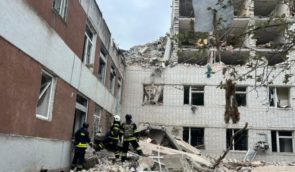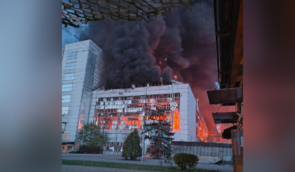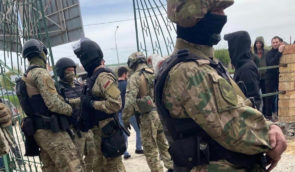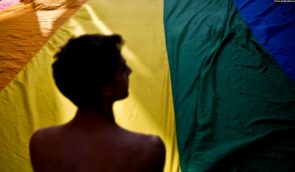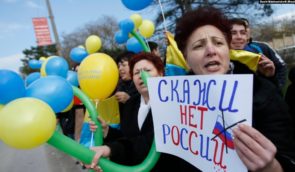Ukrainian journalists in Vienna named 50 freedom of speech violators in Crimea
Ukrainian journalists in Vienna presented a list of freedom of speech enemies in Russian-occupied Crimea, compiled by the Human Rights Information Centre in cooperation with the Ministry of Information Policy. The list contains the names and surnames of more than 50 people involved in the suppression of freedom of speech and violations of journalists’ rights.
As reported by reporter of the Human Rights Information Centre, the presentation of the list took place in the framework of the OSCE conference “Freedom of speech in unstable situations”, which takes places in Hofburg.
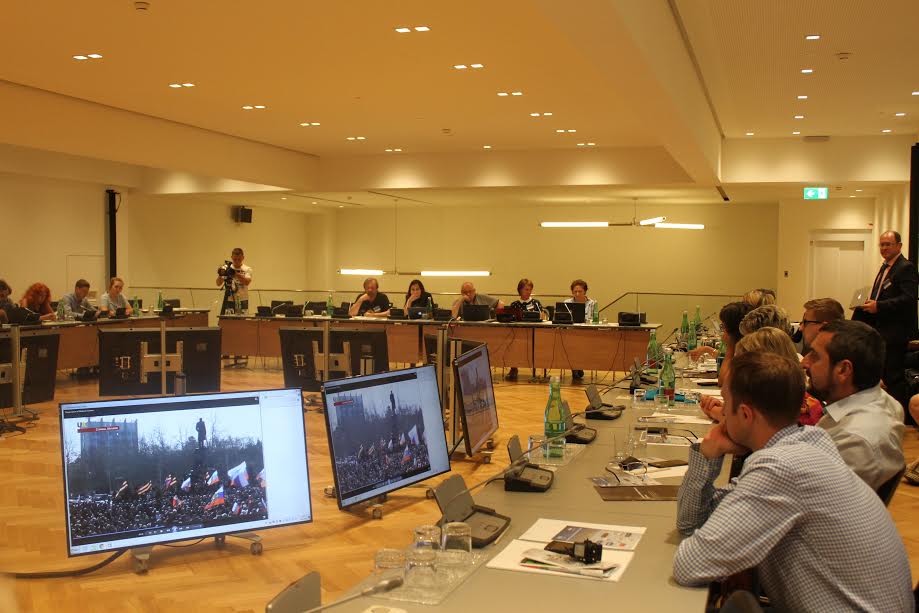
“We understand that Russia does not act by legal means in the occupied Crimea, as well as on its own territory, unfortunately Ukraine and the international community have few tools that could really influence the situation with freedom of speech on the peninsula. In our opinion, crimes can not remain unpunished, no matter how imperfect the instruments of influence, crimes must be documented, and criminals should bear personal responsibility”, – said Yuliya Kazdobina, Advisor to the Ministry of Information Policy of Ukraine, during the presentation.
According to her, the public organization Human Rights Information Centre in cooperation with the Ministry collects information about violators of the journalists’ rights, systematizes it, and compiles lists of violators for this reason. And the compiled lists are transferred to the Prosecutor’s Office of the Autonomous Republic of Crimea, which will open criminal proceedings on the described cases.
The editor-in-chief of the news agency BlackseaNews, Andrei Klimenko, said that he left Crimea shortly after the so-called referendum. The criminal case for allegedly making calls to violate Russia’s territorial integrity was opened against him after he gave a presentation in the American organization The Atlantic Council on the violation of human rights in the Crimea. He was included in the official Russian lists of terrorists and extremists.
According to Klimenko, new names are being added to this list regularly, therefore, his position drops lower. After the criminal proceedings were initiated against him, the house of his colleague Tatiana Guchakova, who has not yet left Crimea at that time, was searched. Afterwards, she also had to leave for mainland Ukraine.
Andrei Klimenko believes that Russia turns Crimea into a military base, and it is impossible for freedom of speech to exist on a military base.
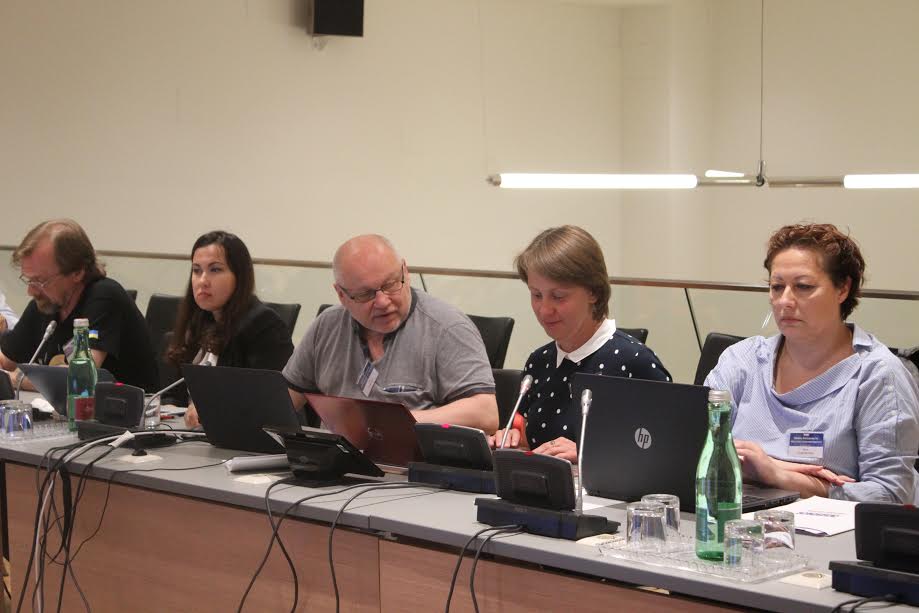
The editor-in-chief of the Crimean News media outlet, Gayana Yuksel described how the Ukrainian and Crimean Tatar media were ousted at the beginning of the occupation. According to her, the Crimean Tatar mass media were cracked down particularly harshly, as it was the Crimean Tatar people who protested massively against the illegal annexation of Crimea.
“In August of 2014, I and my husband Ismet Yuksel, who is the General Coordinator of the Crimean News, temporarily left for Turkey, since husband has Turkish citizenship. On August 10, when we were returning back, the FSB border guards of Armyansk town said that he has no right to enter the territory of Crimea and the Russian Federation for five years. Then we realized that we wouldn’t be allowed to work in Crimea”, – Gayana Yuksel said.
According to her, the agency employees received threats with demands to cease their activity on the peninsula and they were summoned for interrogation to the FSB.
“On April 22, 2015, I was summoned to the Center for Combating Extremism, where they interrogated me and drafted a protocol regarding the publications of 2006. In 2015, the agency was suspended in Crimea, because the occupation authorities refused to grant a work permit. We transferred the agency to Kyiv”, – Yuksel said.
In turn, Olena Yurchenko, journalist of the Krym.Realiyi radio, noted that the first step of Russia after annexation was the disconnection of Ukrainian TV channels and radio stations in the territory of Crimea.
“This step showed how the success of the occupation was depending on Russian propaganda and false news about Ukraine and the world. Afterwards, special conditions were created in which independent media work became impossible, some journalists and entire editions were driven out from Crimea. Some of them lost their property, for example, the occupation authorities stole all equipment from the TV channel Chernomorskaya. Overall, 11 publications were forced to leave Crimea, including ATR the only Crimean Tatar channel in the world”, – noted Olena Yurchenko.
Journalist Yuriy Lukanov, who represents the Human Rights Information Centre, added that Russia has recently begun using new technologies to suppress freedom of speech. Where at the beginning, the media workers were accused of calls to violate the territorial integrity of Russia, now the employees of the Sevastopol analytical center Nomus Dmytro Shtyblikov and Oleksiy Bessarabov, who were detained in the autumn of 2016, are declared as saboteurs by the Russian authorities.
As a reminder, on March 3 in Kyiv, human rights defenders have released a list of names based on the testimonies of the injured journalists, photos, videos, media reports and official documents. The so-called list of “freedom of expression stranglers” includes at least 10 people who have organized large-scale curtailing of freedom of speech and expression in the Crimea. And includes more than 50 people are perpetrators of this crime, who directly persecuted and intimidated journalists in the occupied peninsula.

